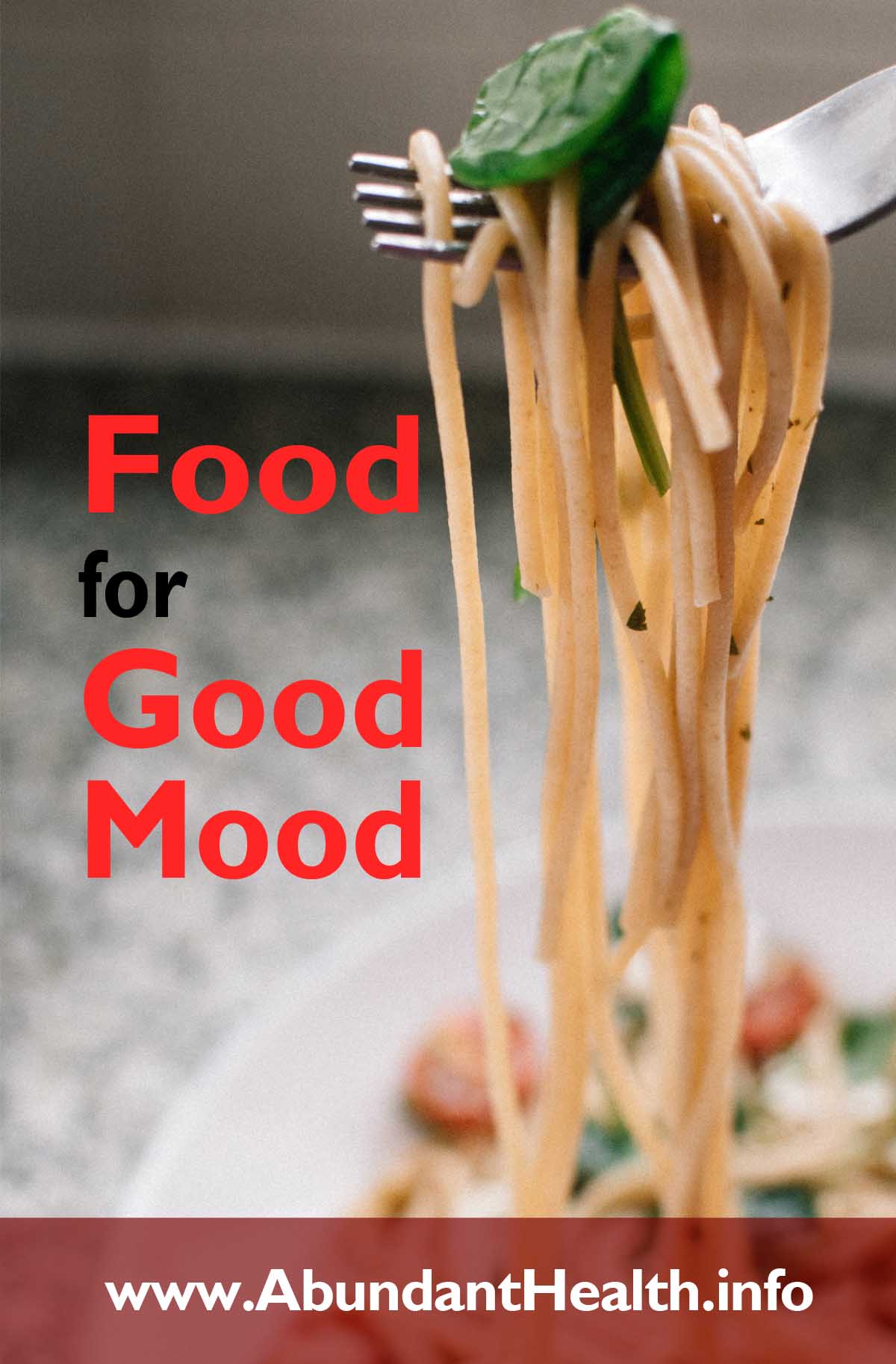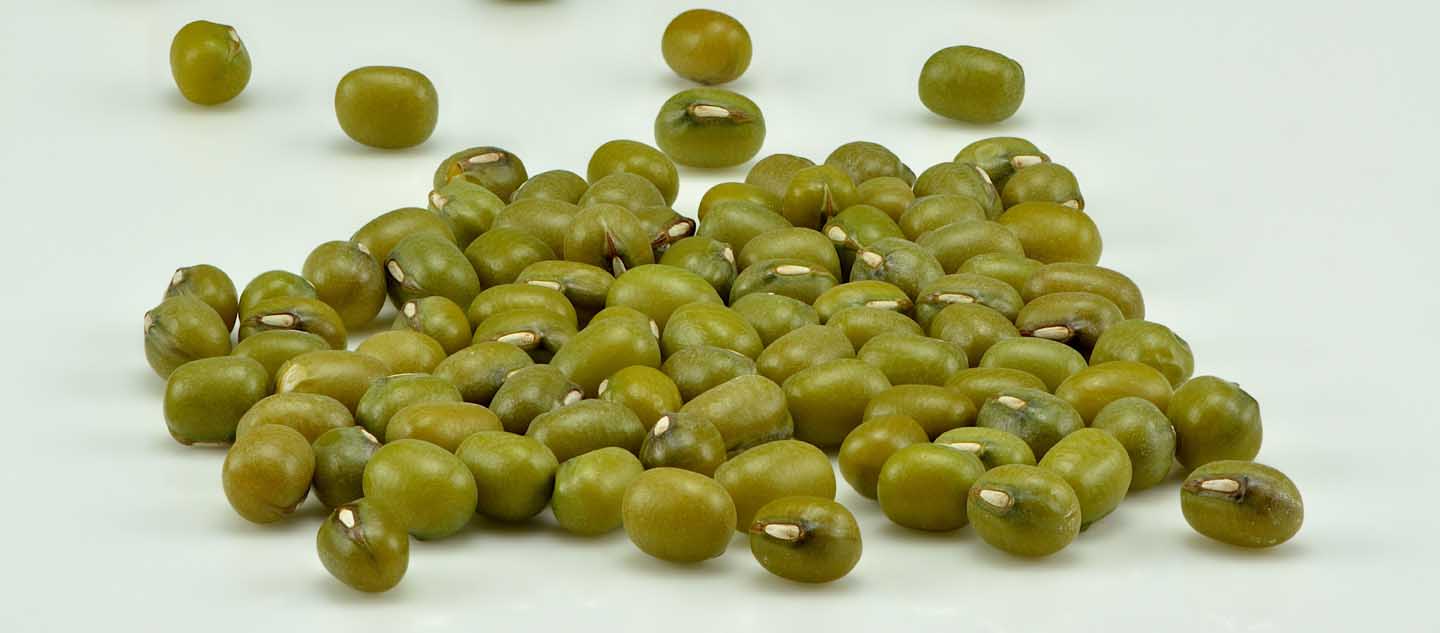Why do we feel like chocolate when the weather is cold and cloudy, when we are lovesick or worried, but on a hot, bright summer day our mouths water when we have a crispy plate of salad in front of us? Our eating behavior is largely dependent on moods, humor and the environment. If there is such a close connection between our mind and eating behavior, is the reverse conclusion allowed that we can influence our mind and mood through our food?

A peaceful picture: a baby is suckling on the mother’s breast. First, it is wide awake and smiles blissfully at its mother. Then it becomes calmer and calmer, the eyes close. Finally it falls like a ripe apple from the tree, slipping off from the mother’s breast. It fell asleep peacefully. The baby has been pacified in the truest sense of the word. It became very quiet and fell into a comfortable sleep. Why? Of course it is full, satisfied, its needs have been met in every way. The composition of the milk also contributed to that. Scientists have found opiate-like substances in breast milk that allow babies to sleep sound and deep. It is not only in this first infant nutrition that there are substances that affect our psyche. We find them in practically all foods, be it in a positive or negative sense.
Why Do We Eat?
If we did a survey about why we eat, we would quickly see that most of the answers have nothing to do with nourishing our bodies. This reason is usually mentioned first, just rarely we eat because we are hungry, but rather to satisfy very specific needs. We eat to cultivate community, because it is fun, because of tradition, out of boredom, because it involves our senses, out of frustration, sorrow and consolation. Eating not only nourishes our body but also our soul.
Frustration Diets
There are diets that fight excess weight with fat. It is not fat that makes fat, but lots of carbohydrates, say the supporters of those low-carb diets. You want to lose weight with a lot of fat and protein, but without bread, pasta and potatoes. For the first moment, people adhere to the diet quite well, until there is such a craving for carbohydrates that you first secretly nibble on sweets and then finally openly admit that you just couldn’t make it anymore. Some who have persevered on such a diet for a long time have even become depressed and irritable. What happened?

Carbohydrates – Balm for the Soul
A large part of our diet usually consists of carbohydrates. Experts advise us to eat around 50-60% of the energy we consume in the form of carbohydrates. So these are potatoes, bread, rice, pasta, cereals. Carbohydrates are also found in fruits, sweets and cakes. The starch that the plants provide is an energy reserve for them. And those, in turn, are made up of glucose molecules. Why does our body need glucose to get in a good mood?
Our brain functions are controlled by neurons, that is, brain cells. In order for them to work, the brain itself produces neurotransmitters, which are messenger substances. Moods and feelings are influenced by those neurotransmitters. If the brain has a lot of the messenger substance serotonin available, the body and soul can relax. In order for the brain to be able to produce serotonin, however, it needs the right supply of building blocks from the food. The most important building block is tryptophan. This amino acid is a protein component that occurs in our daily diet.
Tryptophan gets easier into the brain the more carbohydrate-rich our food is. Insulin is the transport mechanism for tryptophan. The carbohydrates cause the blood sugar level and thus the insulin level in the blood to rise. But insulin also transports other amino acids. It preferentially binds the amino acids other than tryptophan first in order to transport them into the cells. This frees the transport mechanisms for tryptophan to enter the brain.
The more tryptophan gets into the brain, the more mood-enhancing serotonin it can make, and the better we can relax. Now we know why low-carb diets can lead to depression and cannot be sustained for a long time.
Why Chocolate is Addictive
Almost everyone knows the consolation in a box called chocolate candy. Chocolate helps with lovesickness, loneliness, deprivation of love, frustration and bad mood. And why does chocolate help? It contains all the components needed to increase our serotonin level: carbohydrates in the form of sugar, tryptophan comes from milk and fat comes from milk and cocoa beans. Just the serotonin levels from sugar are not very stable. Sugar produces dopamine as well, a neurotransmitter that is produced at the consumption of drugs, and makes sweets very addictive.
Fatty foods increase the effect of carbohydrates in transporting tryptophan to the brain. Then there are around 800 other substances in chocolate, some of which have a clear effect on our mood. When the cocoa beans ferment, amines such as phenylethylamine are formed. Our bodies produce the same substance when we are in love. On top of that, there are also opiates and morphine-like substances. One is called theobromine. It stimulates us, increases our mood, and we reach for the next piece. Neuroactive alkaloids such as were previously only known in wine and beer have also been found. So it’s no wonder that people can become addicted to chocolate and that it is so difficult for us to do without the comforter.
The Secret of the Italians

A diet dominated by carbohydrates, such as those found in daily pastas of the Italian cuisine, is probably a real happiness diet. Perhaps this is one of the reasons that Italians have the lowest suicide rate in Europe. Even the lighting conditions around us affect serotonin levels. Serotonin production is significantly lower in the darker months of the year, but chocolate consumption is significantly higher.
Chocolate and related things only increase our happiness for a short time. Then comes the grief, the bad conscience. Excess energy in the form of sugar and fat increases weight. Sweets, consumed in excess, crowd out other important nutrients that are just as necessary to keep us happy. If we have too much sweet treats, we are first overexcited, then fidgety, nervous, later tired, then depressed and anxious. Only the right carbohydrates bring a good mood in the long run. It’s the carbohydrates we get from rice, pasta, potatoes, and whole grains.
The good news is that there are plenty of other foods out there that can make our serotonin levels rise without us becoming addicted to them. We need to watch out for some good tryptophan sources.
Foods High in Tryptophan
The highest tryptophan sources we find in the green mung bean, in soybeans and in black-eyed pea. Consequently tofu is high in tryptophan. All nuts are good sources, especially the cashew nut. Sesame, sunflower and pumpkin seeds provide us tryptophan as well. How about a tofu spread with ground pumpkin seeds, well seasoned with onions, garlic and herbs?

We also find tryptophan in cereals, millet, oatmeal, quinoa and bananas. A breakfast cereal with grains, nuts, bananas and soy milk therefore provides us with plenty of tryptophan.
Vitamins and Minerals Help our Mood
In order for the tryptophan to be properly metabolized, vitamins from the B group are needed, especially B6. This occurs mainly in all types of grain. We also need folic acid to maintain our vigor and vitality. This is found in all leafy vegetables, also in fruits such as cherries, mangoes and oranges. Folic acid works together with vitamin B12 which is almost exclusively found in dairy products and meat. That is why people who do not consume animal products must pay particular attention to their vitamin B12 status. B12 deficiency can lead to depression.
But our soul also needs iron, zinc, selenium and iodine to be happy. Calcium and magnesium strengthen our nerves. Once again we see how important a varied, healthy whole food diet is. Supplements can never deliver what we find in a healthy, natural diet.

Stay Always Up to Date
Sign up to our newsletter and stay always informed with news and tips around your health.

Esther Neumann studied Nutrition at the University of Vienna. Since then she served as an author for the health magazine “Leben und Gesundheit” and conducted health lectures in various locations of Austria.
Leave a Reply